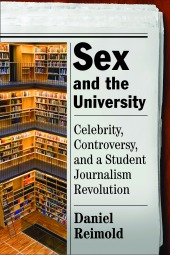–
Journalism Internships, Scholarships, Conferences & Awards
To have your program, position, award or get-together featured, email me ASAP.
–
–
Internships
Entertainment Intern, BuzzFeed, Los Angeles
“BuzzFeed’s Entertainment section is looking for an entertainment and pop-culture obsessive for a full-time paid internship in the Los Angeles office. The person will work closely with BuzzFeed entertainment staff on research, content creation, and idea generation. The ideal candidate will have some experience writing, reporting, and researching at a previous media internship or school newspaper. This is an excellent opportunity to work on a fast-paced site and add clips to a portfolio.”
—
Assistant to New York Menswear Editor, NYC
“WGSN was launched in 1998 as a trend forecasting service for the fashion and design industries, providing trend forecasting and analysis to the largest and most influential businesses in the world. Today, WGSN is the world’s leading fashion forecaster, with over 300 editorial and design staff in offices throughout Europe, Asia, North and South America and the Middle East. The New York WGSN office is looking for a summer intern to assist the NY Menswear Editor.”
—
Food Writing Intern, First We Feast, NYC
“Complex’s food and lifestyle site, First We Feast (www.firstwefeast.com), is hiring interns to start immediately. This is an opportunity to be part of a young, rapidly-growing new website while also gaining access to the established online and print expertise of Complex Media. Candidates should be confident writers who are comfortable working quickly and efficiently on tight deadlines. Your responsibilities will include writing blog posts, sourcing images, fact-checking, and helping with social media strategy.”
—
Editorial Intern, Infectious Magazine, Virtual
“Infectious Magazine is an online publication which highlights exceptional local and national bands through the coverage of daily news, interviews, live reviews, album reviews, and photos. It is our mission to not only aid readers in further falling in love with their favorite band, but introduce them to new, exciting acts, and keep the music scene alive. We are currently seeking an editorial intern to assist in editing and publishing news posts for our website, http://www.InfectiousMagazine.com.”
—
Editorial Intern, Mother Earth Magazine, Topeka
“An internship with MOTHER EARTH NEWS offers an excellent opportunity to work with and learn from experienced editors, writers and media professionals. You also will gain valuable experience in producing a national magazine and its Web content. Specific duties for this paid, part-time internship include research, writing, proofreading and clerical responsibilities. Internships are only available on-site in our Topeka, Kansas office.”
—
Graphic Design Intern, Channel 7 Boston, Boston
“Art school students or those majoring in Graphic Design or Advertising Design with basic skills and a clear understanding of design terminology will handle a range of duties and responsibilities acting as a design assistant to the various designers in the department.”
—
Sports Correspondent, isportsweb, Virtual (I think)
“Interns at isportsweb.com will be assigned to cover a sports beat for a team they have interest in. As that team’s correspondent, interns are expected to generate multiple stories per week about that team. These stories can and should be opinionated, and we give our writers freedom to pick topics they find relevant to their particular team.”
—
Bilingual Newsroom Intern, KMGH-TV, Denver
“Bilingual News Internships program gives students real-world experience and provides a unique insight into newsroom operations for Azteca America in Denver, CO. This includes learning alongside newsroom management, reporters, photographers, producers and assignment desk editors.”
—
—
Job
Web Editor, Yale Environment 360, New Haven
“Yale Environment 360, an award-winning online magazine based at Yale University, is seeking a Web Editor to oversee the day-to-day operations of the website. The Web Editor’s responsibilities include finding and creating photo/multimedia packages; preparing articles and images for the content management system; copy editing and proofreading; writing short articles and items; promoting the site via social networks and elsewhere; and serving as general operations manager.”
—
—
Awards
2013 Online Journalism Awards
“Online journalists, digital news organizations and students worldwide can apply for an award. The Online News Association (ONA) and the University of Miami School of Communication are accepting entries for the 2013 Online Journalism Awards recognizing excellence in digital reporting. This year, ONA is incorporating non-English entries into all categories, which include: breaking news, planned news/events, explanatory reporting, topical reporting, online commentary, feature, student projects, technical innovation, innovative investigative journalism, watchdog journalism, public service and general excellence in online journalism.”
—
—
Follow me on Twitter @collegemedia
–
–
Like this post?
Like College Media Matters on Facebook
–
–


































